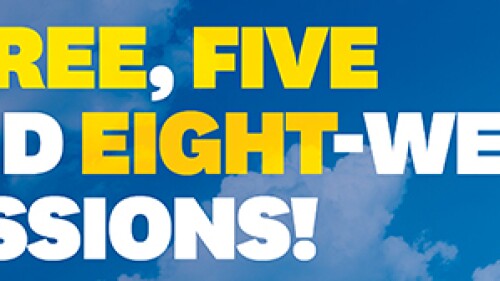In the podcast, The Last Archive, Jill Lepore promises to “trace the history of evidence, proof, and knowledge, in troubled epistemological times”. Are we living in troubled epistemological times? Why didn’t I receive some kind of alert on my phone?
I’d never thought of this definition for our uncertain era. However, now that it’s been pointed out to me, this may be an appropriate tag line for our current times. Perhaps something like 2020: Living, Learning, and Laughing in Troubled Epistemological Times.
Since the target audience of this blog is those working or studying in Higher Ed, I’m going to assume that everyone has a notion of the meaning behind Lepore’s podcast description. I’m also going to assume that I’m not unique in immediately Googling Epistemology. I want to add a bit of caution here...this is a rabbit hole! Dive headfirst into this one and you may encounter Alice and several anamorphic animals on your way to what you thought was going to be a simple definition. So, before you go astray...
According to the Stanford Encyclopedia of Philosophy, “the term “epistemology” comes from the Greek words “episteme” and “logos”. “Episteme” can be translated as “knowledge” or “understanding” or “acquaintance”, while “logos” can be translated as “account” or “argument” or “reason”. So, therefore, (according to Merriam-Webster) epistemology is the study or a theory of the nature and grounds of knowledge, especially regarding its limits and validity.
Harvard historian, Jill Lepore, thankfully does not dive into the definition rabbit hole headfirst. Instead, she incorporates good, old-timey, story-telling techniques from radio days at turn of the century in her attempt to find out “Who Killed Truth?”
The podcast was inspired by Lepore’s discovery in the Harvard Law School Library of a news article about a turn-of-the-century cold murder case from which she began to think about how the process of discovery in a single murder case encapsulated the historical, human endeavor of knowing things. In troubled epistemological times, honing our discovery skills seems essential. So, how do we do that? Ever since Socrates peppered people with questions instead of wowing them with his wisdom, we’ve been aware of the importance of a well-placed question in luring us into active engagement in our own learning and understanding.
A well-placed question can move us from a passive state of listening to an active state of thinking. Instructors spend a tremendous amount of time trying to develop “good” questions. Specifically, questions that will help their students reach the learning outcomes that have been defined for them at the beginning of the course.
When we think of Higher Ed, we often envision an erudite professor at the front of a classroom sharing their wisdom while students take copious notes and absorb the shared insights. However, it is seldom that a professor just lectures without any cognizance of how it is being received. Most likely, even if it is designated as a lecture or presentation, there is engagement with the students or attendees. An instructor or presenter raises their voice to emphasize an important point, tells a joke to reengage the audience, asks and responds to questions asked. In a face-to-face presentation, facial expressions can be read, and lessons can be tailored to the audience in front of the sage on the stage.
When Covid-19 forced students and instructors to separate, many face-to-face classes transitioned into remote learning overnight. Many of the established best-practices of online learning weren’t able to be employed in these rapid transitions. Many classroom activities and opportunities for formal or informal interactions were lost in translation to a new delivery medium.
Experienced online instructors devote an immense amount of attention to designing a course that facilitates interaction. A course designed intentionally to promote student opportunities to actively engage in constructing their own knowledge often includes questions to promote thinking before a lesson, questions throughout the lesson to highlight important points, and questions at the end of a lesson to help a student assess what they did and didn’t understand.
Whether or not an instructor was able to quickly incorporate guiding questions into the digital delivery, students can and should use this questioning technique in their own learning design to help themselves develop a better understanding. Just as instructors must spend time on the design of a course to better enable their teaching, so should learners spend time on the design of their learning.
Jill Lepore developed a big question, “Who killed truth” to guide her historical studies. As a historian, she worked hard to ask the right questions to help her understand a wide variety of historical events."For every event, she pieced together the questions and inferences from that time while developing her own line of questioning.”
I recommend the Jill Lepore podcast as enjoyable entertainment, but also as a unique look at how a historian develops an understanding through a thoughtful framework of questions - a skill that might serve us all well.





